Thousands protest in Thai capital, urging king to relinquish control of funds
Thousands of anti-government protesters have gathered in the Thai capital of Bangkok, calling on the country’s monarch to relinquish control of royal funds worth tens of billions of dollars, despite an escalated crackdown on protests.
The protesters gathered outside the head office of Siam Commercial Bank (SCB), Thailand’s oldest bank, on Wednesday to call for greater oversight of royal funds.
“At least people should have the space to investigate [how money is spent] and check the institution — not only the monarchy but also other institutions. We will not accept military power anymore,” a protester said.
The demonstrators had originally planned to gather outside the crown property bureau, the office that manages royal assets, but they moved to avoid confrontation with royalists who had announced a counter-rally nearby.
King Maha Vajiralongkorn took direct control of the crown property bureau, which is worth tens of billions of dollars, after ascending the throne.
Previously, the fund — comprising prime real estate, shares in the SCB, and stakes in the country’s largest industrial conglomerate, Siam Cement Group — had been under the supervision of the Finance Ministry. Its exact value is not known, though some estimates suggest it is worth 40 billion dollars.
Protesters have accused the king of wasting taxpayers’ money. They also say the king’s private wealth should be separated from the crown funds.
In a statement released ahead of the Wednesday demonstration, the protest group Free Youth said, “Transferring the crown property to the king’s property is equivalent to a robbery of the nation’s wealth.”
It also criticized the police response to protests, saying that “being near the police does not make you feel safe” in Thailand.
The Wednesday rally was peaceful. However, loud bangs were heard later in the evening, and a volunteer protest guard was reportedly injured.
The development came after police summoned 15 prominent activists on Tuesday to face charges under the lese majeste law, which shields Thailand’s powerful and ultra-rich royal family from criticism.
The draconian law can see those convicted sentenced to up to 15 years in jail per charge.
Prominent student leader Parit Chiwarak, who is among those facing lese majeste charges, said protesters would not back down, while stressing that they must refrain from violence.
“We will not give [the authorities] an excuse to use aggression… We will not fall into their trap even though they are provoking us,” he said.
The Thai government has ramped up a crackdown on anti-government protesters, warning that “all laws” would be used against them.
Last Thursday, Thai Prime Minister Prayut Chan-o-cha ordered security agencies to intensify the suppression of protesters demanding his removal and democratic reforms to curb the powers of the king.
Prayuth’s announcement came a day after thousands of protesters took to the streets of the capital and threw paint at Thai police headquarters, which they said was in response to the security forces’ use of water cannons and tear gas on Tuesday — the most violent day of anti-government demonstrations since July.
The protests in Thailand initially targeted Prayuth but later called for the monarch to be more transparently accountable under the constitution and for the reversal of changes that gave the current king personal control of the royal fortune and some military units.
Dozens of protesters, including many of the most prominent protest leaders, have been arrested on a variety of charges in recent months.
VIDEO | Yemenis praise the military for its successful operations against Israel
VIDEO | Israel continues to bomb Gaza homes
VIDEO | An insider's view of the country: Meybod City in Yazd
‘All wars have rules. All of those rules have been broken’ by Israel
VIDEO | Report flags India’s violation of rights of Rohingya detainees
Turkey's foreign minister meets Syria's de facto leader in Damascus
VIDEO | US Syria plots
'Next to impossible' to rescue patients from Gaza's Kamal Adwan Hospital: Director


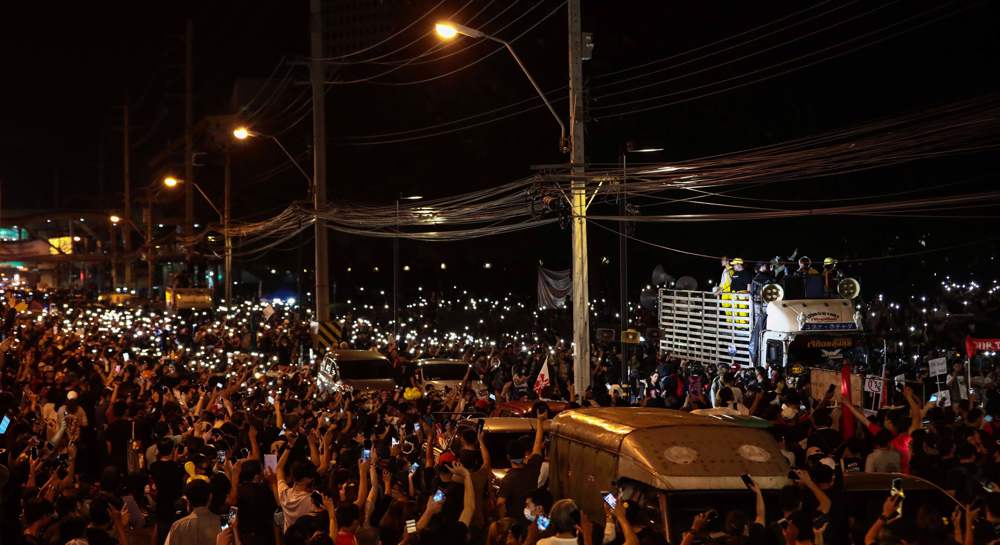








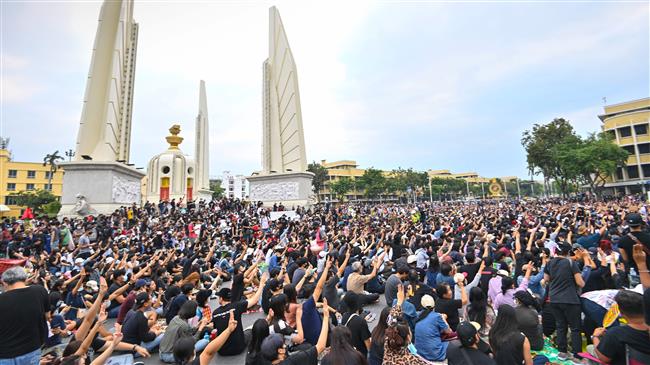
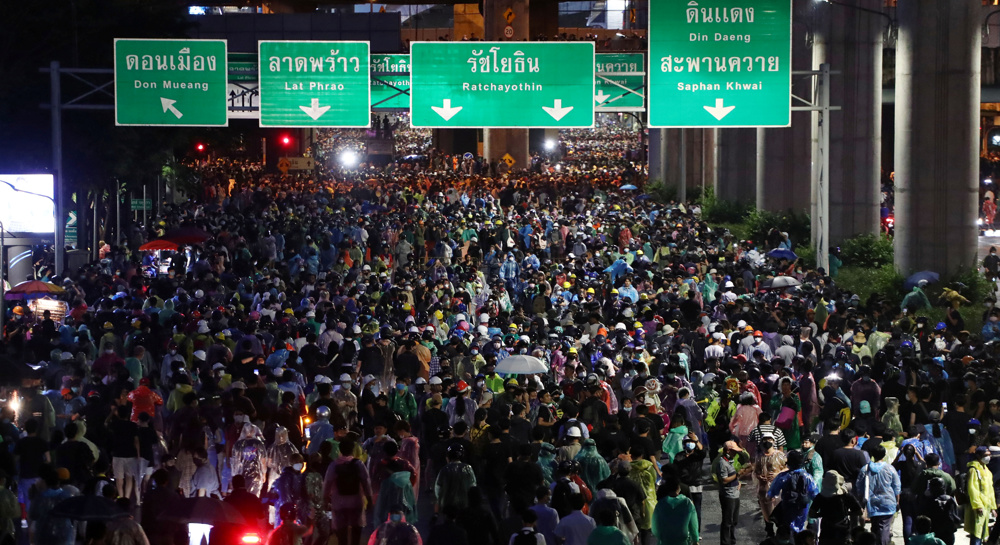
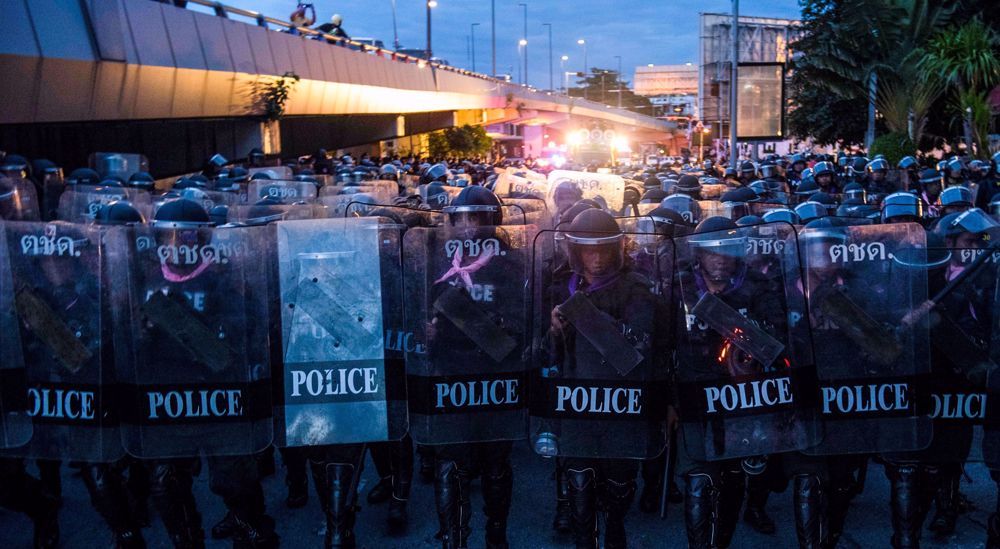
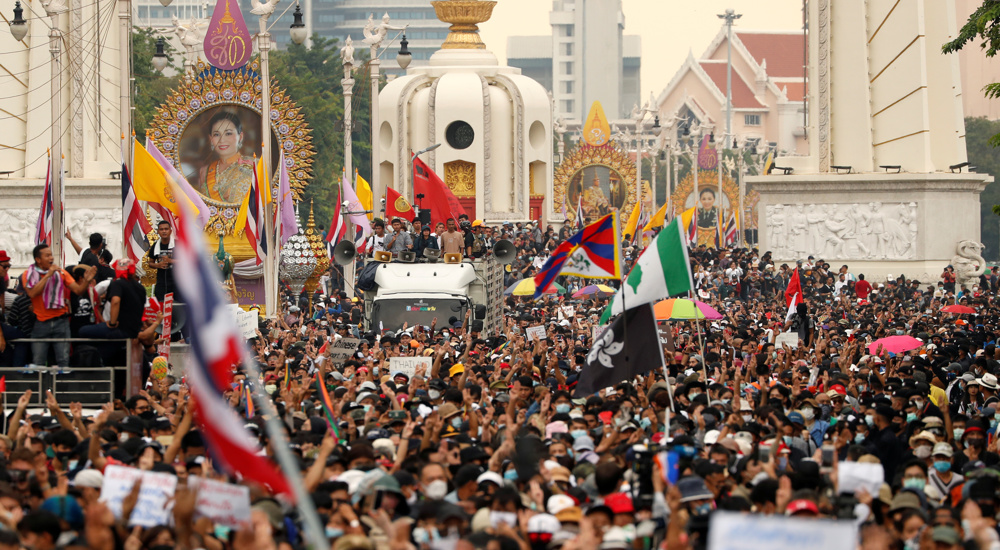

 This makes it easy to access the Press TV website
This makes it easy to access the Press TV website